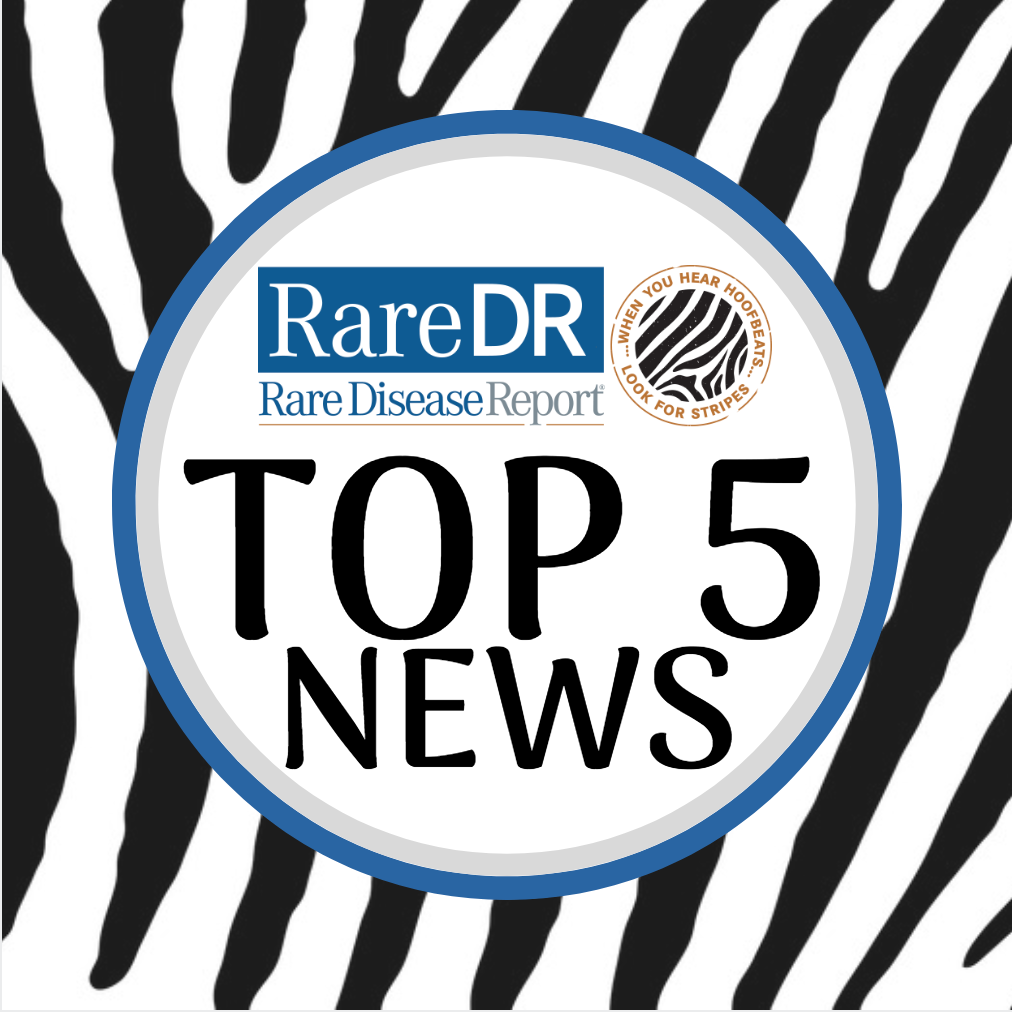Top 5 Rare Disease News of the Week, July 27, 2018
Stay up-to-date on the latest rare disease news by reading the top 5 articles of the week.

5) Rutgers & PharmaKrysto Partner Up to Develop New Treatment for Cystinuria
A new licensing agreement between PharmaKrysto Ltd, a biopharmaceutical company based in Scotland, UK, and Rutgers University, New Jersey, has been made for the development of a new treatment for the debilitating disease that might change the game; the compound is referred to as PK10.
PK10 is a “potentially revolutionary compound” backed by strong preclinical data, which demonstrates the treatment’s potential for effectiveness in patients with cystinuria. The genetic condition causes crystals to form in the kidneys. Since the cystine crystals can grow to many centimeters in size, they prevalently cause pain, blockage of urine, and permanent kidney damage that results in limited or stifled daily activities and living. To prevent amino acid crystals from forming in the kidneys, the drug acts as a molecular “imposter.”
4) Repurposed Compound to be Tested in Phase 2a Trial in Huntingtons Disease
Read more about partnership developing PK10 as a treatment for cystinuria. In an effort to minimize the amount of time that it takes to make new treatments available to those who need them, repurposing drugs is no foreign concept. Especially with rare diseases, such as Huntington’s disease, repurposing drugs offers major potential for placing exciting new therapies on the horizon for the rare, neurodegenerative disease.
One such drug in development is SOM3355, a repurposed compound initially indicated for the treatment of hypertension and angina pectoris. As announced by SOM Biotech, the oral and brain penetrant drug will be entering a phase 2a clinical trial led by Jaime Kulisevsky, MD, PhD, of the Hospital de la Santa Creu i Sant Pau, in Barcelona, Spain, to evaluate its safety and efficacy as a treatment for the chorea movements associated with Huntington's disease.
3) First Human Trial to Evaluate QR-313 for Dystrophic Epidermolysis Bullosa Initiated
Read more about SOM3355 and its repurpose as a treatment for Huntington disease.While there are currently no approved treatments for recessive dystrophic epidermolysis bullosa (RDEB), a rare skin disease characterized by extremely fragile skin and lesions, there are therapies in development. One such therpay is ProQR’s RNA therapy, QR-313, which is now being evaluated in its first human clinical trial, dubbed “WINGS.”
This past May, Rare Disease Report® spoke with Daniel de Boer, CEO of ProQR, in an exclusive interview on the novel RNA therapy in development about its promising preclinical display. “QR-313 is a new therapeutic that is investigational and in clinical studies,” de Boer to Rare Disease Report®. “It aims to restore normal skin in patients by closing the wounds and restoring normal skin strength. We are developing a so-called oligonucleotide, an RNA therapy; this oligonucleotide is topically applied. It is, basically, a cream that patients put on the skin.”
2) New Therapy for ALS Enters Clinical Trials
Read more about the first human trial evaluating QR-313 for RDEB.Investigators at Washington University School of Medicine in St Louis, Missouri, have developed an investigational therapy that could benefit patients with an inherited form of amyotrophic lateral sclerosis (ALS), a fatal and rapidly progressive neurodegenerative disease.
Investigators found that the therapy—antisense oligonucleotides—was capable of reversing signs of neuromuscular damage and extending survival in animal models by 22%, according to data published in The Journal of Clinical Investigation. These findings led to the launch of a phase 1/2 clinical trial to investigate whether the therapy could potentially benefit patients with ALS.
Of the 10% of inherited cases of ALS, 1 in 5 instances is caused by mutations in the SOD1 gene. When mutations occur in the SOD1 gene, the SOD1 protein becomes overly active. Researchers postulated that decreasing protein levels may be an effective way to help patients with these mutations.
1) Dietary Supplement Boosts Muscle-Force Production in Duchenne Muscular Dystrophy Model
Read more about how antisense oligonucleotides may be a new therapy for ALS.A progressive form of muscular dystrophy that occurs primarily in males, Duchenne muscular dystrophy (DMD), currently has no cure; the goal of treatment is to control symptoms and complications associated with the disease in order to improve quality of life.
Now, researchers from the Université Laval’s Faculty of Medicine and Centre hospitalier universitaire (CHU) de Québec Research Centre-Université Laval have found that a glucose-derived dietary supplement was capable of boosting muscle-force production by 50% in a Duchenne muscular dystrophy mouse model in just 10 days.
The researchers believe that their promising findings could potentially pave the way for a clinical trial set to evaluate the supplement’s safety and efficacy in humans with the disease.
“People have a lot of hope for gene therapy, but it will still take years of research before we find an effective treatment,” professor Sachiko Sato stressed in a recent statement. “That’s why it’s important to find other treatments to help preserve the muscular strength of patients as long as possible.”
Read more about the dietary supplement that Boosts muscle-force production in DMD model.